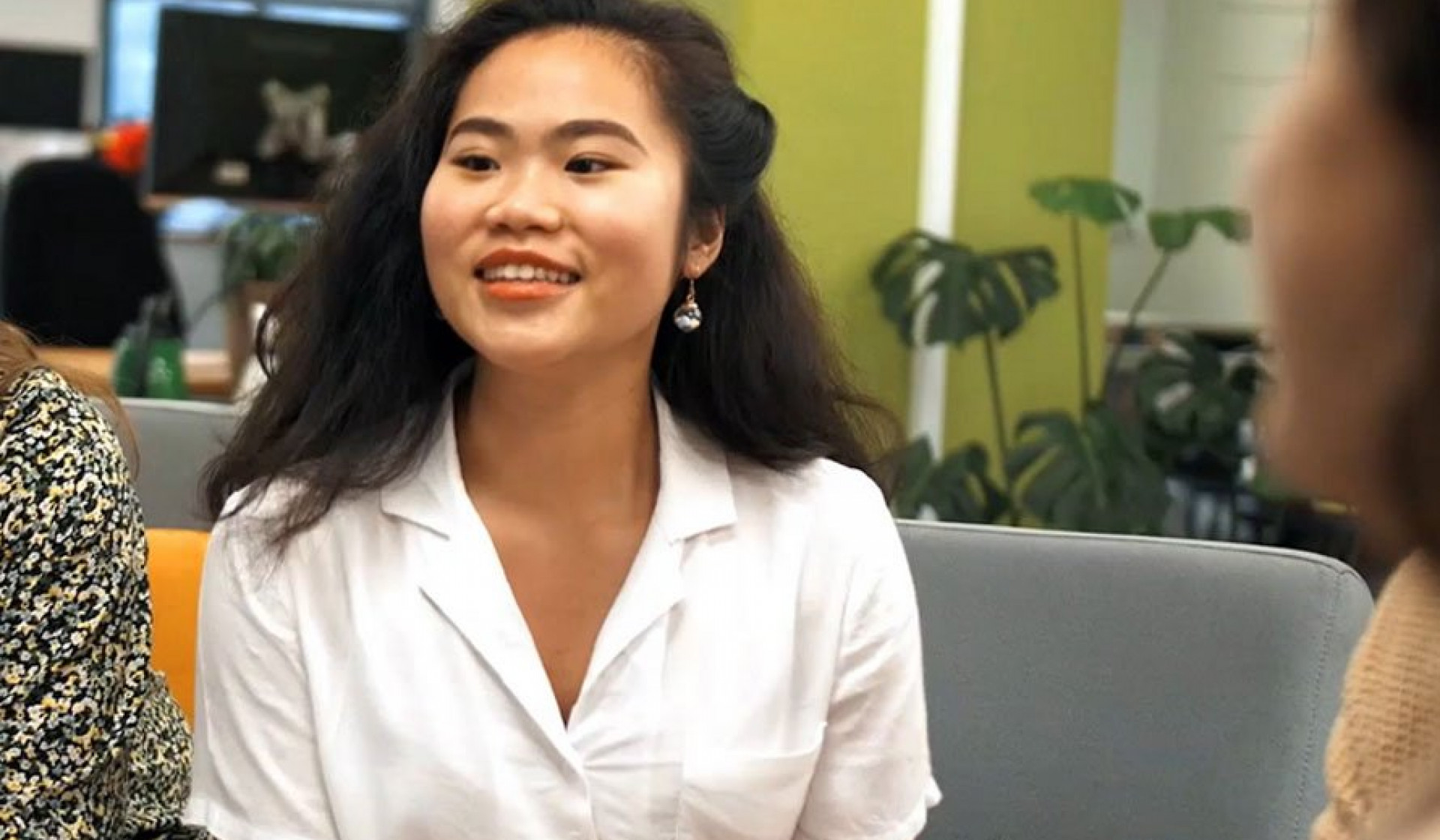Anh Duong came to Catalyst in 2020 for an accessibility internship after finishing university. She says she knew nothing about web accessibility before joining Catalyst, but as she was researching things that might come up in the interview, she felt like accessibility was something she’d like to work on. “I’m the kind of person who feels like we can move forward better if we can help each other,” Anh says.
Anh joined Catalyst during a tumultuous time: just after the first New Zealand lockdown. Anh is Vietnamese, and has only been back to Vietnam once since coming to New Zealand, due to the travel restrictions now familiar to all of us. The day she came back from Vietnam was the day New Zealand had its first case of Covid-19, and she feels lucky she was able to make it back to New Zealand to finish her study. Anh has a business degree with a double major in Business Analysis and Marketing. After finishing the internship Anh was offered a permanent role at Catalyst as a Business Analyst and Accessibility Specialist.
Accessibility specialist
These days, Anh does accessibility audits and consultations for private and public sector clients, and conducts in-depth courses to help people understand web accessibility, and the techniques for making web content accessible and WCAG 2.1 AA (Web Content Accessibility Guidelines) compliant. Anh’s passion for accessibility is clear when she is teaching a course. “In my training, as soon as the participant is thinking about, or empathising with the user, then my training is successful.” Before taking the course, she says, “It wouldn’t take more than 10 seconds for a developer to add an image to their website. But afterwards, they would think about the purpose of images and how they can make them more accessible.”
Accessibility challenges aren't always visible
“I love what I do and find it meaningful,” Anh says. For a while, she worked with Julius Serrano, an accessibility specialist, who is blind and uses a screen reader. “Seeing the obstacles Julius faced made me even more interested in accessibility. I started talking to others at Catalyst and found out we have more people who have invisible disabilities or challenges, like dyslexia or colour blindness, or people who have children who are affected by this. When Julius walks around with a cane, you know he’s blind, but you can’t always tell if a person has low vision if you pass them in the street.”
Before coming to Catalyst and immersing herself in accessibility, Anh says she was in an environment where none of her friends had disabilities. “When you’re more aware of disabled people, you want to know how to treat them, to be aware of your surroundings, to empathise more with others and what they’re going through, and use technology that can help,” Anh says. “We’re living in a world that is catered towards ‘able’ people, and it’s the environment that disables people. It’s OK if you don’t know these things, but the moment you’re aware of it, you want to learn and improve yourself, and improve things in the community.”
Reclaiming her heritage
When she came to New Zealand, Anh found there was not much representation of Vietnam in the community. She feels that she would like to represent her home country, “to talk about us as Vietnamese.” Recently she stopped using the English name she’d drawn randomly out of a hat when learning English in Vietnam, and is now reclaiming her Vietnamese name in her New Zealand life. “When I asked people at Catalyst to refer to me as my Vietnamese name, it was a big deal for me. As Asian people we often feel like we need to Westernise our identity, but we shouldn’t,” Anh says.
In a recent email to let everyone in the company know about the name change, Anh said, “a lot of folks from a non-English-speaking country use their English name just to make it easier for others. But I think it's important for me personally to be known as ‘Anh’, because it represents my nationality, my identity and the appreciation I have for my family (each word in my full name represents a family member).”
Learning from personal experiences
Anh’s experience moving to a new country helps inform her work in accessibility. “As soon as you’re acknowledging something, you’ll be more aware of it in your surroundings. I’ve always liked taking care of people,” she says. “What my Mum taught me is to be aware of your surroundings, to pay attention to things.” Her goal is to be helpful and to be part of a community where people of all abilities can participate. “It’s a step-by-step process, but you keep learning, and trying to make things better.”
If you would like our team to support you with your accessibility goals, contact us.

